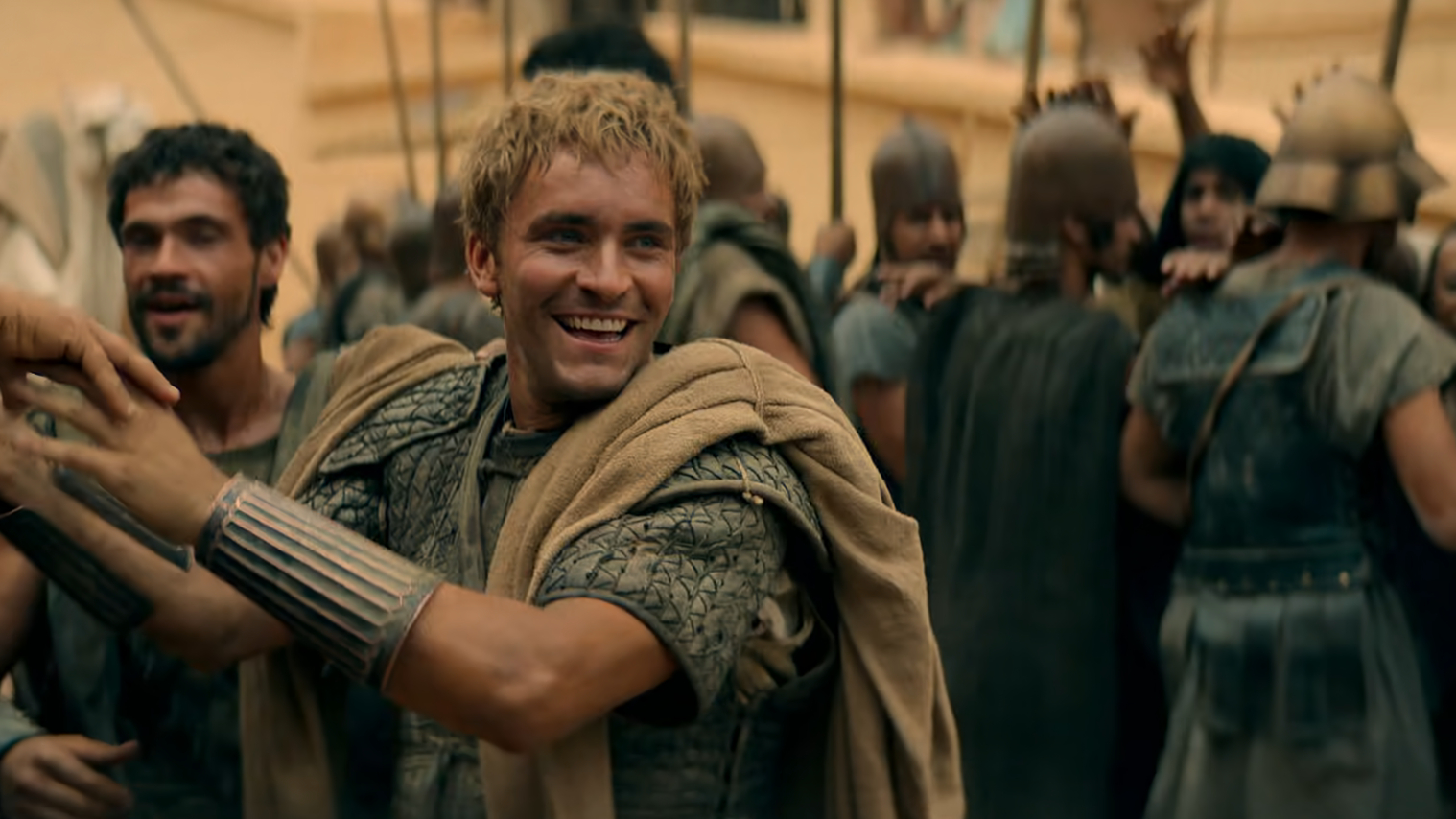Alexander: The Making of a God episode 1 recap — accession and rivalry
Alexander: The Making of a God episode 1 covers Alexander's origins.

The latest updates, reviews and unmissable series to watch and more!
You are now subscribed
Your newsletter sign-up was successful
Want to add more newsletters?

ONCE A WEEK
What to Watch
Get all the latest TV news and movie reviews, streaming recommendations and exclusive interviews sent directly to your inbox each week in a newsletter put together by our experts just for you.

ONCE A WEEK
What to Watch Soapbox
Sign up to our new soap newsletter to get all the latest news, spoilers and gossip from the biggest US soaps sent straight to your inbox… so you never miss a moment of the drama!
Alexander: The Making of a God episode 1 is the first installment of the Netflix docudrama revolving around the historical icon, his rise to prominence, and his obsession with toppling the Persian Empire
The first episode of Alexander: The Making of a God deals with Alexander's accession to the throne, and sets the stakes of his rivalry with the Persian ruler, Darius III.
Here's a full recap of Alexander: The Making of a God episode 1. Please note: the show makes use of dramatized clips to illustrate the experts' extrapolations of historical events; some of what is shown here is not concrete historical fact.
Setting the stakes
Alexander: The Making of a God opens with a prophetic warning from an oracle (played by Souad Faress), summarising the bloody conflict that's set to arise between the two nations.
We're then briefly introduced to Dr. Calliope Limneos-Papakosta's present-day excavation of the ancient city of Alexandria (taking place in the modern city of the same name). Papakosta has dedicated nearly two decades of her life to the excavation, which now covers thousands of square meters of ruins; one of her most exciting discoveries was a unique marble sculpture of Alexander himself.
We're then given our first introduction to the would-be figure. We first hear of Alexander's exploits c. 336 BC (according to Professor Lloyd Llewellyn-Jones), a year into Alexander's voluntary exile in Illyria. At this point, we're also introduced to Hephaestion (Alexander's close friend and purported lover), and Ptolemy, another of the would-be King's closest allies.
He'd left his father's kingdom (Macedon) after an encounter with General Attalus. As Dr. Salima Ikram explains, Attalus accused him of not being a bastard and of being unfit to sit on the throne. Alexander was furious, but Philip, instead of defending him, basically tried to kill his own son, prompting Alexander to leave Macedon behind.
The latest updates, reviews and unmissable series to watch and more!
Dr Carolyn Willekes tells us that his exile ended when Philip invited Alexander back to Macedonia for the wedding of his sister to a neighboring warlord, a practice Philip carried out regularly, to strengthen Macedon's borders. At Aegae Palace in Macedonia, Alexander is greeted by his mother, Olympias.
Olympias was one of Philip's seven wives. Although she was held in high regard for giving birth to Alexander, but lost some of her power when Philip married his new wife, Eurydice.
Taking the throne
At the wedding, Philip asks Alexander to rejoin him in the fight against Persia, which Alexander agrees to. Subsequently, Philip is assassinated by one of his trusted bodyguards, Pausanias. And whilst we don't know who was responsible for ordering the killing, at least one of our experts posits Olympias was responsible, especially since one source also explains that Olympias murdered Eurydice's baby, which supposedly led her to take her own life.
Alexander quickly claims the throne and blames the Persian Empire for his father's death, promising to make them pay for what they have done. The experts explain why this was such a surprising move: Macedon was a tiny nation compared to the well-structured Persian Empire, which housed nearly 50% of the world's population at the time.
Following this, we meet Darius III, who came to power around the same time as Alexander, in similarly bloody circumstances. Two of his predecessors had been poisoned, which was seen as an ill omen for the dynasty. We also learn that he wasn't from the noble line, and he achieved legitimacy as a Persian ruler through his marriage to Stateira.
In another dramatized clip, Darius learns of Philip's death from General Memnon, who also lets slip that Alexander has two divisions of Macedonian soldiers positioned on Persian soil near Magnesia, commanded by Generals Attalus and Parmenion. Darius instructs Memnon to confront them immediately, Neither Darius nor Alexander take part in this initial campaign: Alexander is still dealing with the assassination, whilst Darius purportedly didn't consider the soldiers a major threat.
We're then presented with the differing self-perceptions the rulers would have had. In a hallucinatory sequence, we see Olympias reveal Alexander's true heritage as a son of Zeus, promising success over Persia and beyond. In contrast, we're told Persian kings never saw themselves as anything but servants to the gods.
Stateira and Darius are shown together in bed. She identifies Attalus as a man they could potentially bribe —which we're told is a common tactic employed by the Persian Empire. Attalus exerts control over the Macedonian army, and there's no love lost between him and his new king.
Despite this, Attalus sends word to Alexander, reaffirming his loyalty to Macedon and informing them that the Persians had attempted to bribe him with control of the kingdom in exchange for his loyalty to them. Alexander cunningly sees this as the perfect chance to seize control, in a move we're told shows the origins of "Alexander the tyrant". Attalus is accused of high treason and collusion with the enemy, which leads to his execution. The episode then ends with Darius being informed both of Attalus' death and of Alexander making for Persia.
Alexander: The Making of a God is now streaming exclusively on Netflix.

Martin was a Staff Writer with WhatToWatch.com, where he produced a variety of articles focused on the latest and greatest films and TV shows. Now he works for our sister site Tom's Guide in the same role.
Some of his favorite shows are What We Do In The Shadows, Bridgerton, Gangs of London, The Witcher, Doctor Who, and Ghosts. When he’s not watching TV or at the movies, Martin’s probably still in front of a screen playing the latest video games, reading, or watching the NFL.

